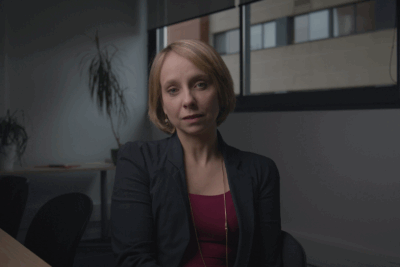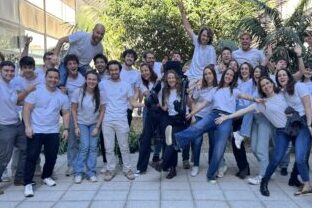18th May 2025
Nearly 1 in 10 newborns in Europe is admitted to a neonatal intensive care unit[1], with respiratory distress syndrome (RDS) still a leading threat to preterm infants. To address RDS complications and improve perinatal care, EIT Health launched the second edition of the InnoStars Connect programme—a challenge-based initiative for research institutions, start-ups, hospitals, universities and SMEs to co-develop innovative solutions with Chiesi Group.
Each year, around 400,000 newborns in Europe are admitted to neonatal intensive care units (NICUs)[2], with preterm and low birth weight infants facing the highest risks. Despite advances in treatment, respiratory distress syndrome (RDS) remains a leading cause of illness and death among this vulnerable group.[3] For many families, timely access to quality neonatal care is critical.
Long-term consequences for lack of treatment
One of the most severe forms of this condition is neonatal respiratory distress syndrome (NRDS), which poses an especially serious threat to low-birth-weight infants. According to the American Academy of Pediatrics, RDS affects 15% of full-term and 29% of preterm babies admitted to NICUs[4]. The condition is nearly universal for babies born at 24 weeks before sharply declining to less than 1% at 37 weeks[5].
While many infants recover from NRDS with proper care, the risks don’t end there. Survivors are prone to chronic lung conditions like bronchopulmonary dysplasia (BPD), and up to 25% of BPD cases may develop pulmonary hypertension, which carries a two-year mortality rate as high as 47%[6]. In severe cases, NRDS can also lead to brain damage[7], resulting in long-term disabilities including cognitive delays, motor impairment, impaired hearing and impaired vision.[8]
Innovators wanted!
To help tackle these challenges and drive innovation in maternal and newborn care, EIT Health InnoStars in collaboration with Chiesi Group is launching InnoStars Connect — a programme whose first two challenges are aimed to bring universities, hospitals, research centres, start-ups, and SMEs to develop solutions that improve prenatal and natal care, and neonatal respiratory care (in particular, NRDS and BPD).
“InnoStars Connect is a powerful example of how real-world challenges can spark meaningful, collaborative innovation,” said Sarah Haddadin, EIT Health InnoStars RIS Innovation Lead and Programme Manager. “At EIT Health, our core mission is to bring together start-ups, researchers, healthcare providers, and industry to solve real-world problems like preventable neonatal deaths. With this initiative, we’re giving innovators across Southern, Eastern, and Central Europe the platform, support, and partnerships they need to drive real change.”
What’s in it for innovators?
Organisations selected through InnoStars Connect will join Europe’s largest health innovation network, gaining access to expert mentorship, tailored bootcamp, and funding to help bring their healthcare solutions to life. Ten teams will be chosen to co-develop and pilot their innovative solutions alongside challenge partners Chiesi Group, with guidance from leading figures in the pharmaceutical and healthcare sectors. Each team will receive a lump sum of €10,000 — with €6,000 dedicated to solution development, €3,000 for travel to a bootcamp, and €1,000 for mentoring and coaching. After refining their projects during the programme, top ten teams will pitch their solutions to European healthcare leaders at the EIT Health InnoStars Grand Final.
The application deadline is June 13th .
New tools for diagnosis, monitoring, and care delivery
Within this project, Chiesi Group is seeking breakthrough solutions to enhance prenatal and neonatal care as well as improve outcomes for newborns affected by serious respiratory conditions like NRDS and BPD. Despite medical advances, these conditions remain leading causes of neonatal mortality and long-term complications.
The innovation call spans a wide range of areas, including early diagnosis through biomarkers and predictive models, smart and sustainable drug delivery, regenerative therapies, and digital tools such as mobile health apps and remote monitoring. Priorities include enhancing neonatal intensive care units (NICUs) with smart technologies, improving nutrition for at-risk infants, and expanding access to high-quality care in low-resource settings.
Chiesi Group also welcomes broader solutions in prenatal and neonatal care—such as managing preterm birth risks, reducing rehospitalisation, and enabling early detection of conditions like preeclampsia through apps and wearables. Supporting families is central to the challenge, with a focus on tools that foster parent-infant bonding, provide psychological support, facilitate home care education, and boost participation in clinical trials via remote technologies. Addressing health inequities through scalable, inclusive innovations remains a core priority.
“We are calling on health innovators, start-ups, and SMEs to work together with us and change the future for millions of mothers and newborns,” said Federico Bianco, Vice President, Global Medical Affairs at CARE Franchise of the Chiesi Group. “With a strong track record in neonatology and an ever-growing passion to advance healthcare through bold, patient-centred innovation, Chiesi supports visionary thinkers and doers who want to transform ideas into impactful solutions. Together, we can turn the tide on preventable perinatal deaths.”
[1] https://neoipc.org/the-project/
[2] https://neoipc.org/a-europe-wide-push-to-improve-care-for-premature-babies-new-study-explores-benefits-of-kangaroo-care-on-reducing-infections-in-nicus/
[3] https://www.ncbi.nlm.nih.gov/books/NBK560779/
[4] Reuter S, Moser C, Baack M. Respiratory distress in the newborn. Pediatr Rev 2014;35:417–28. doi:10.1542/pir.35-10-417 Available: link.
[5] In one study of babies born between 2003 and 2007 at various National Institute of Child Health and Human Development (NICHD) Neonatal Research Network centers, https://www.physio-pedia.com/Neonatal_Respiratory_Distress_Syndrome
[6] https://pmc.ncbi.nlm.nih.gov/articles/PMC7979539/
[7] https://www.nhs.uk/conditions/neonatal-respiratory-distress-syndrome/
[8] https://www.nhs.uk/conditions/neonatal-respiratory-distress-syndrome/
EIT Health and the EDIT-B consortium transform bipolar disorder diagnosis with groundbreaking blood test

Discover this life-changing project today.
Three EIT Health innovators nominated for EIT Awards

Meet our three EIT Award nominees.
Hospital Clínic study reinforces patient participation as key to digital health innovation

New work published in Journal of Medical Internet Research.